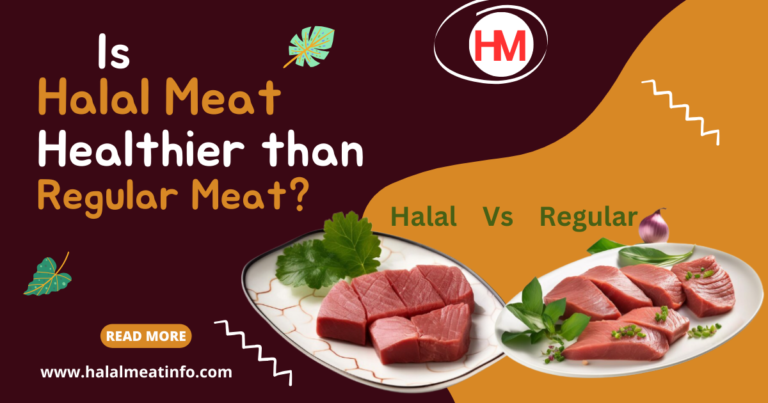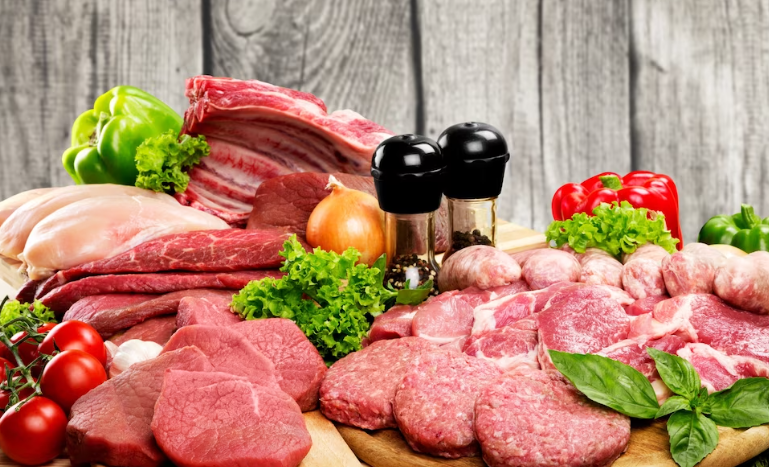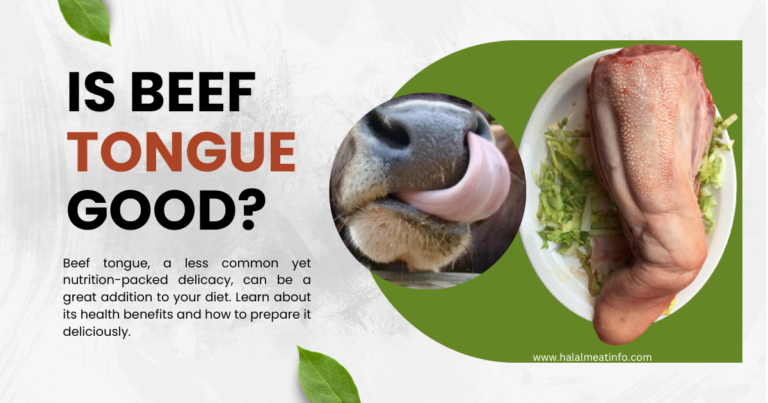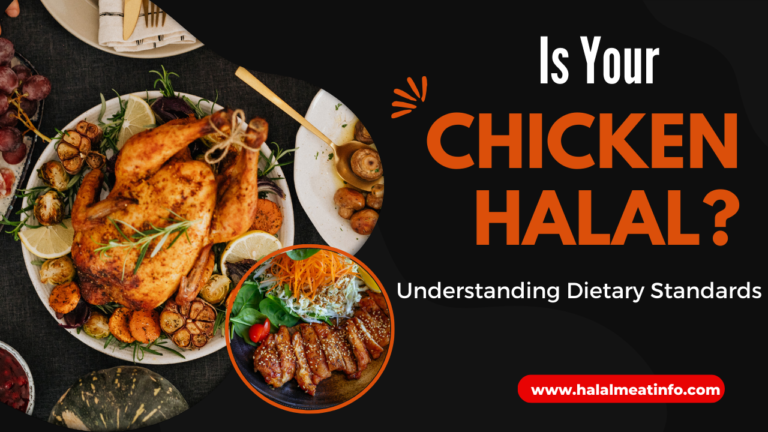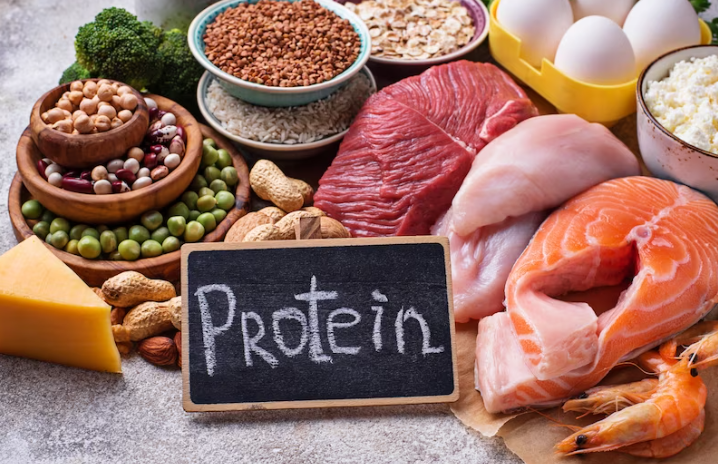Is Rabbit Meat Halal: Clarifying Common Misconceptions
Rabbit meat, a dietary staple in many cultures, raises a question among the Islamic community – is it Halal? Islamic dietary rules, or ‘Halal’, dictate what is permissible to eat and this can vary based on several factors. In this blog, we delve into a detailed exploration of these factors. We aim to provide clarity and shed light on the subject to guide our readers towards a well-informed decision. Let’s begin this enlightening journey.

Understanding ‘Halal’ – A Primer
‘Halal’, in the Arabic language, means ‘allowed’ or ‘permitted’. In the context of food, it signifies items that are permissible to consume under Islamic laws. These laws are not arbitrary; they are deeply rooted in Islamic doctrine, the Quran, and the teachings of Prophet Muhammad. The concept of ‘Halal’ extends beyond the type of food; it also considers the method of slaughter and preparation.
The Significance of Dietary Laws in Islam
The dietary laws in Islam, often referred to as ‘Halal laws’, play a vital role in a Muslim’s life. These laws are not merely about what is consumed, but they are a form of worship, a way to show obedience to Allah. It is a holistic approach that encourages ethical and moral eating habits, promoting health and hygiene. Adhering to these laws is a spiritual duty for every Muslim, emphasizing the deep, intrinsic connection between faith and daily life.
Rabbit Meat in Islamic Tradition
Rabbit meat in Islamic tradition has sparked many debates. While some believe it is permissible, others dispute it. The main source of these differing viewpoints lies in the Hadiths, the sayings of Prophet Muhammad (Peace Be Upon Him). Certain Hadiths suggest that the Prophet (Peace Be Upon Him) did not consume rabbit meat but He allow others to eat. However, Islamic teaching do not clearly categorize it as ‘Haram’ or forbidden. This ambiguity has led to varied interpretations among Islamic scholars and communities.
Rabbit Meat in Quran
The Quran prohibits Muslims from consuming pork, blood, or meat tainted with blood. The Quran does not explicitly mention rabbit meat as ‘Haram’. Nevertheless, there is an indirect reference to it. Rabbits, being herbivores and not swine or scavengers, are generally considered acceptable for consumption.
Rabbit Meat in Hadiths
There’s a famous Hadith that captures a moment when a group was hunting a rabbit around Mar-al-Zahran. The crowd chased after the rabbit but soon grew tired. Eventually, I caught the rabbit and handed it over to Abu Talha. He then slaughtered the rabbit and gifted either the hip or two thighs to the Prophet (Peace Be Upon Him), (as confirmed by the narrator, two thighs were sent). The Prophet (Peace Be Upon Him), accepted this gift. When asked if the Prophet had eaten the rabbit meat, the response was affirmative [1].
A narration from Ibn Al-Hawtakiyyah recounts an anecdote involving the Prophet (Peace Be Upon Him), and a Bedouin. The Bedouin arrived at the Prophet’s place carrying grilled rabbit meat and bread. He presented it to the Prophet (Peace Be Upon Him), mentioning he discovered the rabbit in a bleeding state. To his companions, the Prophet (Peace Be Upon Him), expressed that consuming the meal would not be an issue. However, he encouraged the Bedouin, who was fasting, to partake in the meal [2].
Historical Consumption of Rabbit Meat in Islamic Societies
Historically, the consumption of rabbit meat in Islamic societies varies across regions, reflecting local customs, traditions, and availability. Some societies have embraced rabbit meat due to its high nutritional value and easy rearing process, whereas others have refrained due to interpretations of the Hadiths. Despite this disparity, there exists no uniform consensus on consuming rabbit meat, underscoring the need for personal judgment based on one’s understanding of Islamic laws.
You Might Like is halal meat more ethical
Interpretations of Scholars on Rabbit Meat
The consumption of rabbit meat has been a subject of profound scholarly discourse in the Islamic community. Opinions diverge greatly among scholars, leading to distinct interpretations across various schools of thought.
Hanafi School of Thought
The permissibility of rabbit meat consumption is a perspective held by the Hanafi School, one of the principal Sunni Schools. The Hanafi scholars interpret the Prophet’s refusal to eat rabbit meat as a personal preference rather than a religious prohibition.
Shafi’i and Hanbali Schools of Thought
The Shafi’i and Hanbali Schools, also among the Sunni tradition, hold similar views to the Hanafi School. They interpret the Hadiths as evidence of personal discretion rather than a binding religious law on the permissibility of rabbit meat.
Maliki School of Thought
On the other hand, the Maliki School, another significant school in Sunni Islam, interprets the Hadiths differently. They believe that the Prophet’s (Peace Be Upon Him), refusal to consume rabbit meat indicates a prohibition, hence classifying rabbit meat as ‘Makruh’ or disliked [2].
Shia School of Thought
In Shia Islam, scholars typically advise against the consumption of rabbit meat. This perspective stems from their interpretation of the Hadiths, where they perceive the Prophet’s (Peace Be Upon Him), abstinence from rabbit meat as a prohibition. According to the Shia school of thought, a transformation has taken place in rabbits, which renders their meat impermissible for consumption, or ‘Haram’. Furthermore, as per Hadith [2] the prohibition of eating rabbit meat is also linked to the biological traits shared by female rabbits and women, including the experience of a menstrual cycle. This similarity has led to a restriction in its consumption [3].
Factors Making Meat Halal
To classify meat as Halal, several key conditions must be met. Firstly, the animal should belong to the category of permissible species outlined in the Quran. Secondly, the animal must be alive and healthy at the time of slaughter. Thirdly, the slaughter itself should be performed by a sane and adult Muslim. Halal slaughter requires a quick, deep cut with a sharp knife to the throat that severs the windpipe, jugular veins, and carotid arteries without damaging the spinal cord. It’s mandatory to say ‘Bismillah’ followed by ‘Allahu Akbar’ during the process.
Benefits of Rabbit Meat
- Rabbit meat, being a lean protein, plays a crucial role in body tissue growth and sustenance.
- With low fat and calorie content, rabbit meat is an ideal choice for weight watchers or those battling obesity.
- Rabbit meat is rich in essential vitamins such as B12 and B3, known for boosting brain health and improving skin condition respectively.
- The meat contains important minerals like selenium, which has antioxidant properties, and iron, vital for blood health.
- Rabbit meat, being rich in phosphorous, aids in the fortification of bones and teeth.
- Rabbit meat also supplies us with beneficial omega-3 fatty acids, which promote heart health and diminish inflammation.
Rabbit Meat in Light of Halal Conditions
When it comes to rabbit meat, it meets some of these conditions but raises questions on others. Rabbits are not mentioned as forbidden in the Quran, qualifying them as permissible species. A rabbit can be slaughtered as per the Halal method and the name of Allah can be invoked at the time of slaughter. Still, there is debate due to the Hadiths in which the Prophet (Peace Be Upon Him) refrained from consuming rabbit meat. This has led to diverse scholarly interpretations and no consensus, making the Halal status of rabbit meat subjective to individual understanding and judgment.
Rabbit Meat in Modern Halal Certifications
In the modern world, the role of Halal certification bodies becomes paramount in determining the Halal status of various food products, including rabbit meat. These bodies, recognized internationally, conduct rigorous checks to ensure that all aspects of food production adhere to Islamic dietary laws.
Role of Halal Certification Bodies
Halal certification bodies are organizations that verify the Halal status of various products and services. Their responsibilities extend beyond just the slaughter process. These bodies scrutinize the entire production process right from raw material procurement to packaging, labeling, and distribution. These bodies serve as a credible source of assurance for consumers seeking Halal products.
Stance on Rabbit Meat
As for rabbit meat, the stance of these certification bodies varies in response to the ongoing scholarly discourse. Some bodies permit the certification of rabbit meat owing to the lack of explicit prohibition in the Quran and Hadiths. They align with the schools of thought which interpret the Prophet’s refusal to consume rabbit meat as a personal preference rather than a religious ban. On the contrary, other certification bodies refrain from endorsing rabbit meat as Halal. These bodies lean towards the interpretations that view the Prophet’s abstention as indicative of a prohibition. Consequently, the Halal certification of rabbit meat hinges on the jurisdictions of these individual bodies and their adopted interpretations of Islamic dietary laws.
Personal Choice and Cultural Influence on Halal Food Choices
The choice to consume Halal food extends beyond religious doctrine and often intertwines with personal beliefs and cultural influences. Individual discretion plays a crucial role in interpreting religious texts and deciding what conforms to their understanding of Halal. Cultural practices, passed down generations, also significantly shape these choices. For instance, certain regions might refrain from consuming a particular type of meat due to cultural norms, even if it’s technically classified as Halal. Hence, the consumption of Halal foods is multifaceted, influenced by religious interpretation, personal beliefs, and cultural traditions.
FAQ’s
Yes, rabbit meat is generally considered halal by Islamic scholars.
Some scholars may have varying opinions, but it’s generally accepted if slaughtered by a Muslim following halal practices.
Indeed, reciting “bismillah” (in the name of Allah) during the slaughter is generally a requirement for it to be deemed halal.
Some Islamic cultures may have preferences or restrictions, but the general consensus is that rabbit meat can be halal.
It’s advisable to look for halal certification from a reputable authority to ensure it meets halal standards.
Rabbit meat is a lean protein source with low calories and fat. It is rich in vitamins like B12 and B3, beneficial for brain health and skin health respectively. It also contains selenium, an antioxidant, iron for blood health, phosphorous for strong bones and teeth, and omega-3 fatty acids for heart health.
Conclusion
In the end, the consumption of rabbit meat in Islam is a matter of personal belief and interpretation, heavily influenced by scholarly teachings and cultural norms. The various schools of thought provide different viewpoints, creating a spectrum of opinions within the Muslim community. Some individuals rely on modern Halal certifications, while others adhere to their understanding of the religious texts. The choice, therefore, remains a personal one, guided by a blend of religious instruction, scholarly interpretation, cultural influence, and individual conscience. This diversity in interpretation and practice is a testament to the rich complexity of Islamic dietary laws, underscoring the importance of seeking knowledge, understanding context, and making informed choices.

